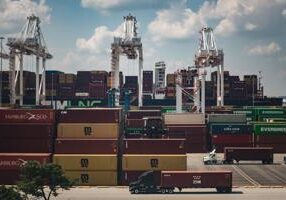
Details pending on billions in foreign investments coming from trade deals
When President Donald Trump announced a string of trade deals with key U.S. trading partners recently, he touted pledges for billions of dollars in U.S. investments.
When Trump reached a deal with the 27-nation European Union, he said the EU would buy $750 billion in energy from the U.S. and invest $600 billion in the U.S. The president said South Korea would buy $100 billion in U.S. liquefied natural gas or other energy products and give the U.S. $350 billion for investments. With the Japan deal, Trump said Tokyo would invest $550 billion in the U.S. at his behest.
“Japan will invest, at my direction, $550 Billion Dollars into the United States, which will receive 90% of the Profits. This Deal will create Hundreds of Thousands of Jobs – There has never been anything like it,” Trump wrote after he reached the framework deal with Japan.
During interviews, Trump has referred to the promised foreign investments as a “gift,” “seed money,” and a “signing bonus.”
The White House has not released detailed terms of those agreements. Given the fast-pace of deals before Trump’s trade deadline, the president’s trade team could still be finalizing the terms.
However, Japan, the EU and South Korea have characterized the investments differently than Trump.
The White House said: “Japan will invest $550 billion directed by the United States to rebuild and expand core American industries.”
Ryosei Akazawa, Japan’s chief trade negotiator, said the money will come from loans and loan guarantees from government-backed institutions. Japanese officials said equity will be no more than 2% of the total, The Japan Times reported.
EU leaders also walked away with a different impression of the deal. The European Commission noted in a fact sheet that the “political agreement” was “not legally binding.” Those last three words were in bold.
European Commission President Ursula von der Leyen’s deal sheet said the bloc would buy U.S. energy products as it shifts away from Russian energy.
“The EU intends to procure US liquified natural gas, oil, and nuclear energy products with an expected offtake valued at $750 billion (ca. €700 billion) over the next three years,” according to the fact sheet.
The EU fact sheet said: “EU companies have expressed interest in investing at least $600 billion (ca. €550 billion) in various sectors in the US by 2029, further boosting the already significant €2.4 trillion in existing investment.”
Trump’s plans for the foreign money come as many states and other governments look to restrict some foreign investments, particularly from U.S. adversaries like China. Multiple states have passed laws restricting foreign investment in agricultural land, particularly near sensitive sites, such as military bases.
Trump has said he wants to use tariffs to restore manufacturing jobs lost to lower-wage countries in decades past, shift the tax burden away from U.S. families and pay down the national debt.
Trump has said he wants America to be more self-reliant, producing, making, and selling products such as steel, pharmaceuticals, and semiconductors.
Latest News Stories

Fentanyl poised to take center stage during Trump, Xi meeting
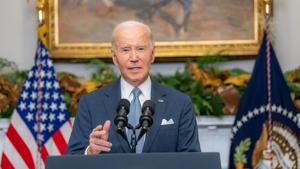
‘Outrageous’: Lawmakers bash Biden admin for targeting, surveilling 156 Republicans

WATCH: Cruz calls on House to impeach federal judge over subpoenas of Republicans

WATCH: Pritzker declares agricultural trade ‘crisis’ while Trump touts new deals

Economists say Trump’s tariff play could boost trade deficits

Amnesty International condemns U.S. strikes on suspected drug boats
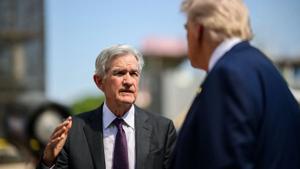
Federal Reserve cuts key interest rate for second time this year
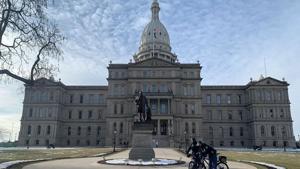
Immigrants grow Michigan’s population, advocates say
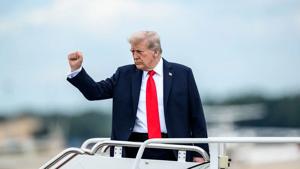
WATCH: Trump says he can’t run for third term after months of conjecture
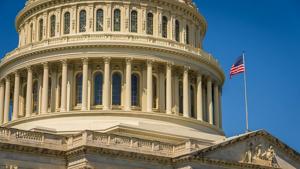
Senate votes to approve ‘Bat Week’; no vote to end shutdown
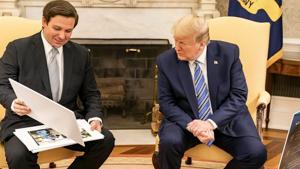
Florida to crack down on H-1B visas, following Trump’s lead
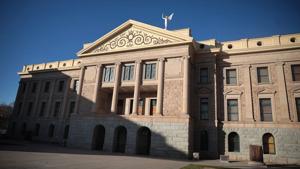
Expert: Arizona’s 2026 budget faces Big Beautiful Bill impact

Research institute to Congress: Prioritize American healthcare over noncitizens

Illinois beef producers say Trump’s Argentina beef plan hurts farmers
